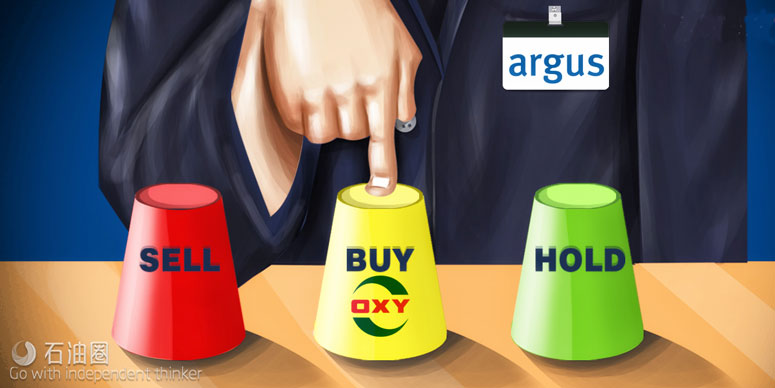Reassured by Donald Trump’s presidential agenda and the relative stability of oil prices once OPEC and non-OPEC countries settled on oil quotas, investors opened 2017 with a record $73.04 billion deals, according to findings by PwC.
The investment represents a 160 percent increase in mergers and acquisitions (M&A) deal value, year over year, which includes the return of foreign capital in U.S. shale assets. As for deal volume, 53 were announced during the first quarter, up 36 percent year over year.
And yet despite all of this, PwC said there are signals the tide is starting to turn. Commodity prices retreated during the middle of the first quarter and oil and gas equity index declines may have tempered investor exuberance.
“As the quarter progressed, we sensed there was a little bit of pullback as we exited the quarter,” said Doug Meier, PwC’s U.S. oil and gas sector deals leader. “Did seller optimism get a little ahead of the market? Did we have a little too much enthusiasm for the recovery and for what that enthusiasm meant for valuation?”
While the second quarter may reveal a more down to earth investor sentiment, the first quarter eager activity was driven largely by upstream transactions, PwC said. The Permian Basin remains one of the hottest basins around the world; investment there totaled 20 deals – worth $21.36 billion – and hit a new high for the play.
Worth $62.23 billion, 11 megadeals were a key part of the deal value increase during Q1. PwC found that six upstream deals were part of that space and generated $29.30 billion. Year over year, upstream deal value skyrocketed 304 percent during the quarter.
Throughout the energy space, investors are looking toward M&A. During the fourth quarter, oilfield services (OFS) generated 10 M&A deals worth $29.6 billion – marking the sector’s most active period since the end of 2014 unleashed the beginning of the downturn, according to PwC.
Mergers and acquisitions worth $39billion were announced outside the US during the three months, according to independent oil and gas researcher 1Derrick.
Sixty-five percent of that total was accounted for by Canadian transactions, driven by two mega oil sands transactions.
ConocoPhillips divested oil sands and deep basin gas assets to Cenovus for $13.3billion and Shell sold bitumen projects to Canadian Natural Resources for $8.5billion.
In the UK North Sea, Shell agreed to the sale of assets to Chrysaor, backed by Harbour and EIG Global, for up to $3.8billion, while Delek Group said it would pay about $1billion for the remaining 80.3% stake in Ithaca Energy.
ExxonMobil announced a $1billion divestment of operated Norwegian Continental Shelf fields to HitecVision-backed Point Resources.
Mangesh Hirve, COO of 1Derrick, said private equity had “become active” during the period.
Mr Hirve said: “Internationally, deals crossed the finishing line with transaction structures that included payments contingent on milestones and oil prices and kept some decommissioning liabilities with the sellers.”
In the US, $23billion worth of M&A deals were announced during the three months, taking the global total above $60billion.
It means Q1 2017 was the strongest first quarter in the past decade for upstream M&A.
Fourteen of the top 20 US deals were in the Permian Basin, including the three largest.
ExxonMobil acquired Delaware Basin assets in New Mexico from the Bass brothers for $5.6billion, Noble Energy announced the $3.2billion purchase of Delaware Basin focused Clayton Williams, and Parsley Energy acquired $2.8billion in acreage in Midland Basin from private equity (PE) backed Double Eagle Energy.
1Derrick managing director Ajit Thomas said: “Permian deals continued to dominate the US M&A market, reaching a new quarterly record at $17billion in deal value.
“Buyers were clearly scrambling to get their hands on what they could in the best tight oil play in the world before all opportunities got taken up.”
In Africa, ExxonMobil acquired 25% working interest in Area-4, Mozambique from Eni and Shell divested Gabon assets to Carlyle Group backed Assala Energy.
Tullow divested interests in Lake Albert project, Uganda, to China’s CNOOC and French Major Total.
Aker Owner Roekke Says Aker Solutions, Kvaerner May Do M&A In 2017
OSLO, April 21 (Reuters) – Norwegian billionaire investor Kjell Inge Roekke aims to change the ownership of one of more of his companies in the oil services industry this year, he wrote in his annual letter to shareholders on Friday.
Through his Aker ASA holding company, Roekke is the top owner of several major suppliers to the oil industry, including Aker Solutions and Kvaerner.
Shares of Aker Solutions rose sharply last month following media reports the firm could soon be sold to U.S. competitor Halliburton.
“We’re open to building larger, stronger companies together with others, or to partly or fully divest,” Roekke wrote on Friday, adding it was still too early to conclude what would be best.
“It’s through transactions that Aker created the greatest shareholder value … Therefore I hope and believe that during 2017 there will be changes to the ownership structure in one or more of Aker’s partly-owned oil industry suppliers,” he added.
The oil-to-fisheries investor, one of Norway’s richest with a net wealth of $2 billion according to business magazine Kapital, last year made headlines when his oil firm bought BP’s Norwegian unit, forming Aker BP in a $1.3 billion cash and shares deal.


 石油圈
石油圈
